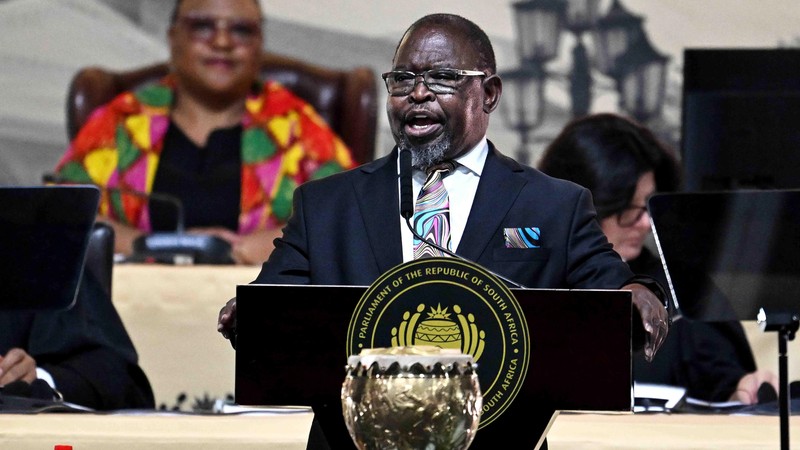As the Finance Minister Enoch Godongwana re-tables the revised National Budget on Wednesday, the major expectation will be around the fiscal aggregates, specifically the budget deficit and debt-to-GDP ratio.
Professor Waldo Krugell, an economist from the School of Economic Sciences at the North-West University, said whatever spending cuts the Minister comes up with will still need to protect frontline services and maintain the path of fiscal consolidation.
“The influence on the property sector is quite indirect, but if he is able to do that, it can increase business confidence and investment in general, and that is good for property. A more sustainable fiscal stance will also help to bring down interest rates on long-term government debt, which is good for other interest rates in the long run,” Krugell said.
Dr Meshel Muzuva, the Academic Programme Leader at the Management College of Southern Africa’s (MANCOSA) School of Business Excellence, said as South Africa prepares for the re-tabling of what is now known as Budget 3.0, expectations are high, and the stakes are even higher.
She said this iteration of the national budget arrives amid a shifting political landscape, a weakened growth outlook, and growing fiscal pressures.
“It is more than just a reset; it is an opportunity to reinforce fiscal credibility while laying the groundwork for inclusive economic recovery,” Muzuva said.
She added that with GDP projections revised downward and inflation easing, the Finance Minister faces the tough task of balancing lower tax revenues against growing spending demands, all while maintaining the commitment to fiscal consolidation.
“Despite some relief in the form of improved corporate tax collections and a R15 billion closing cash surplus, fiscal space remains tight. The main budget deficit has improved slightly to 4.5% of GDP (Investec, 2025), but with debt levels still elevated, tough trade-offs are inevitable.”
For the property sector, the academic said the budget is a significant development. She said they would be looking out for infrastructure investment in increased allocations to transport, energy, and housing as this could unlock new development opportunities and boost land values.
She said they will also be looking for tax policy as changes to transfer duties, capital gains tax, or bracket creep could impact property transactions and investor confidence.
“Any upward shift in transaction costs would likely dampen demand, especially in the mid-tier and high-end residential markets.”
Muzuva said that while the South African Reserve Bank (SARB) sets rates, fiscal policy can influence borrowing costs. She said a stable budget could help ease long-term interest rate pressures, benefiting mortgage affordability and real estate financing.
The academic added that they would also be looking for housing incentives as government support for affordable housing or urban densification initiatives would be welcomed by the sector.
However, she warned that, given current fiscal limitations, expectations around substantial incentives should remain measured.
Tsekiso Machike, the spokesperson for the Minister of Human Settlements, said that the shrinking government’s fiscus with the department budget cuts and like any other government department and institution.
“We would appreciate it if we could be allocated more money to enable the department to accelerate its housing delivery programme to the deserving and qualifying beneficiaries and eradicate the housing backlog.
“However, we are looking forward to the upcoming Budget and are optimistic that there will be a reasonable allocation of funds to the department under the circumstances of budget cuts and constraints,” Machike said.
Adrian Goslett, CEO of RE/MAX of Southern Africa and chairman of the Real Estate Business Owners of South Africa (REBOSA) notes that this about-face was born of coalition politics, but said it ultimately reflects a commitment to stable, consensus-driven economic management, a factor he views as crucial for investor confidence in the country.
“When the Budget 3.0 is announced, I’ll be focusing on the scrapped VAT increase and how the government plans to compensate for the revenue gap – hopefully, there will be no reversal of the increased exemption threshold for transfer duty from R1.1 million to R1.21 million,” Goslett said.
He said one of the less visible but critical outcomes of the budget saga is its impact on the interest rate outlook. “
By avoiding a VAT-induced price spike, Budget 3.0 removes one potential upward driver of inflation, which could help the case for interest rates to remain steady (or even ease) later in the year,” Goslett said.
Muzuva said Budget 3.0 is a pivotal opportunity to restore confidence. She added that for the property sector, the focus will be on whether the government can prioritise growth-enabling investments, protect infrastructure commitments, and send a clear signal that South Africa remains open for investment even in a constrained fiscal climate.
Reezwan Sumad, a research analyst at Nedbank CIB, said on Tuesday morning, the local markets are likely to remain cautious ahead of both the budget and the meeting between the South African and American delegations on Wednesday.
“Until the outcomes of these are known, participants are likely to remain on the sidelines,” Sumad said.
Independent Media Property





